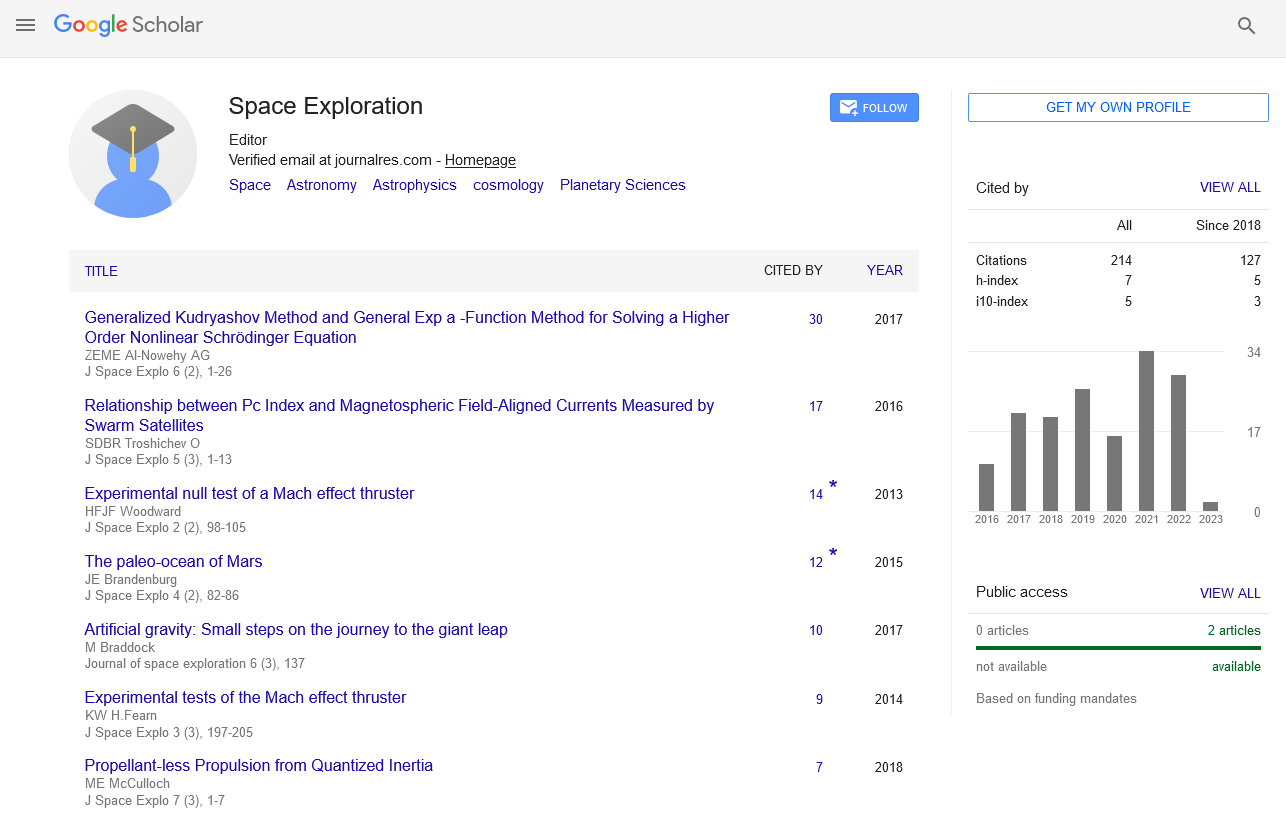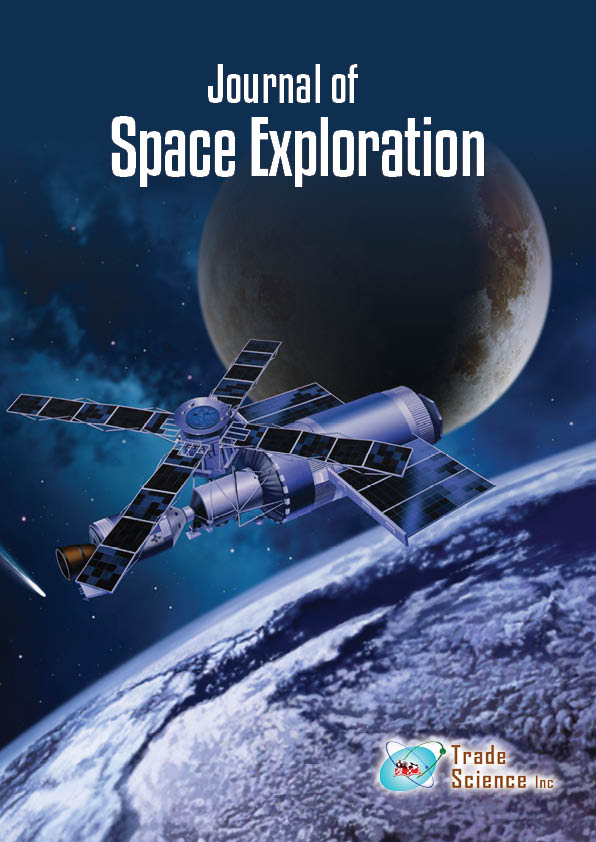Perspective
, Volume: 12( 7) DOI: DOI. 10.37532/2320-6756.2023.12(7).287Asteroids as Time Capsules: Unraveling Clues to the Origins of Life
Received date: 06-July-2023, Manuscript No. tsse-23-108418; Editor assigned: 09-July-2023, PreQC No. tsse-23-108418 (PQ); Reviewed: 17- July-2023, QC No tsse-23-108418 (Q); Revised: 21-July-2023, Manuscript No. tsse-23-108418 (R); Published: 28-July-2023, DOI. 10.37532/2320-6756.2023.12(7).287
Citation:Kong K. Asteroids as Time Capsules: Unraveling Clues to the Origins of Life, J Space Explor.2023;
Abstract
Asteroids, those enigmatic celestial bodies that roam the depths of our solar system, have long fascinated scientists and astronomers. Beyond their potential threat to Earth, these rocky remnants of the early solar system hold a treasure trove of information about our cosmic past.
Keywords
Asteroids; Solar system; Earth
Introduction
Asteroids, those enigmatic celestial bodies that roam the depths of our solar system, have long fascinated scientists and astronomers. Beyond their potential threat to Earth, these rocky remnants of the early solar system hold a treasure trove of information about our cosmic past. Recent research suggests that asteroids can be considered time capsules, preserving valuable clues that may unlock the mysteries of the origins of life on Earth. In this article, we explore how the study of asteroids has the potential to revolutionize our understanding of life's beginnings.
The building blocks of life
The question of how life originated on Earth has intrigued scientists for centuries. While the exact processes that led to the emergence of life remain uncertain, many believe that the answers lie in the molecules that make up living organisms. These essential building blocks of life include amino acids, nucleotides, and other organic compounds. How these molecules formed and came together to create the first living organisms is a puzzle that asteroids might help solve.
Asteroids as cosmic time capsules
Asteroids are relics from the early solar system, dating back over 4.5 billion years. They represent a pristine record of the conditions that prevailed during the solar system's formative years. Because asteroids are relatively small and lack the geological processes present on planets, they have preserved their original compositions remarkably well. This preservation makes them invaluable time capsules that contain a snapshot of the chemical and physical environment of our solar system's early epochs.
Amino acids and organic compounds:
In recent years, researchers have discovered that asteroids contain amino acids and other organic compounds necessary for life. Amino acids are the building blocks of proteins, essential for the functioning of all known life forms. The presence of these organic molecules on asteroids supports the idea that life's ingredients were widespread in the early solar system.
Water and volatiles: Asteroids also harbor water and various volatile compounds, such as carbon, nitrogen, and hydrogen. These elements are fundamental to life as we know it. The water content of asteroids, in particular, raises intriguing questions about the potential role of these celestial bodies in seeding Earth with water, vital for the development of life.
Impact delivery: Another aspect of asteroids' significance in the origins of life is their potential role as delivery vehicles. Through impacts, asteroids could have transported organic material and water to Earth during the planet's early stages of formation. Such impacts could have provided Earth with the necessary ingredients to kick start the development of life.
The OSIRIS-Rex mission: A glimpse into the past
In 2016, NASA launched the OSIRIS-REx (Origins, Spectral Interpretation, Resource Identification, Security, Regolith Explorer) mission to study the near-Earth asteroid Bennu. This mission aimed to bring back a sample of Bennu's surface material to Earth for analysis. By examining this sample, scientists hope to gain insights into the early solar system and the processes that may have contributed to the emergence of life.
Conclusion
Asteroids hold immense promise as cosmic time capsules, offering us glimpses into the distant past and clues to the origins of life. As we continue to explore and study these enigmatic space rocks, we come closer to unraveling the mystery of how life began on Earth and, potentially, on other planets in the universe. The exploration of asteroids not only enhances our understanding of our place in the cosmos but also fuels our imagination about the existence of life beyond our pale blue dot. As we delve deeper into the secrets of these celestial time capsules, we may be one step closer to comprehending the fundamental question of our cosmic origins.

